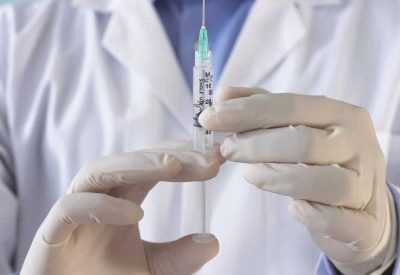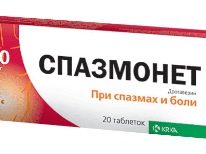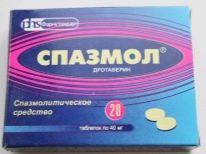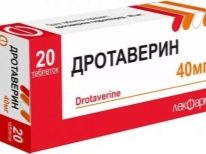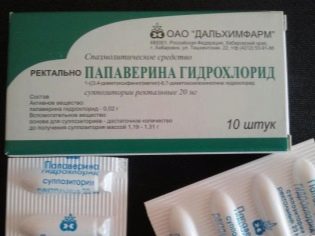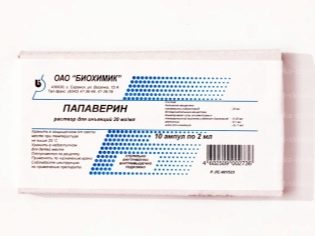"No-shpa" during pregnancy: instructions for use
When a woman is expecting a child, she should be especially attentive to taking any medication, since many drugs adversely affect the development of the baby and the course of pregnancy.
And therefore, in the event of any ailments, self-medication during childbirth is unacceptable. It is up to the doctor to decide whether to take any medication for the pregnant woman.
If it is impossible to do without the use of drugs, the expectant mother will be given safe for the fetus drugs, for example, “No-silo". Such a tool does not hurt the development of the baby, but on the contrary, it will allow to carry out the baby normally and give birth to it in time without complications.
Features of the drug
"No-shpa" is a Hungarian medicine from the group of antispasmodics, whose name comes from the words "no spasm" and can be literally translated "without spasms." It is presented in pharmacies in two different forms. The most popular option "No-shpy" are pills, because it is a convenient non-prescription remedy. They are sold in boxes of 6 to 100 pieces packed in blisters or plastic jars.
The medicine has a round convex shape, yellow color with a greenish or orange shade, and on one side of the tablet the inscription “spa” is noticeable. Store these tablets at home for the entire shelf life (3 years) should be in a dry place at temperatures up to +25 degrees. The average cost of a small pack of 6 tablets is 60 rubles, a pack of 24 tablets is 120 rubles.
The second form of “no-shpy” is a solution for injections that are given intravenously or intramuscularly. It is transparent and differs in yellow-greenish color, is sold in packs of 5 and 25 ampoules containing 2 ml of liquid. The shelf life of such a drug is 5 years, and the average price of five ampoules is 100 rubles, but, unlike tablets, for the purchase of this form of “no-shpy”, a prescription from a doctor is needed.
In addition to these two drugs, the pharmacy can also be found "No-shpu forte." These are oblong-shaped tablets, on one side of which there is an inscription “NOSPA”. The main difference from the usual tablet "No-shpy" - This is a double dosage of the active ingredient. The rest of the drug "forte" is identical, that is, the composition, indications and precautions for such drugs are the same as for "No-shpy" tablets.
The active substance of all types of "No-shpy" is called drotaverine hydrochloride. Its dosage in one tablet is 40 mg (in the “forte” preparation - 80 mg), and in one milliliter of injection solution - 20 mg. The composition of the tablets additionally includes starch, lactose, povidone and some other substances for a dense structure. In the solution for injections, drotaverine is supplemented with sodium disulfite, sterile water and 96% alcohol.
When buying "No-shpy" in a pharmacy, it is important not to confuse this medicine with the drug "No-spalgin."
The composition of these tablets from the company "Sanofi" also includes drotaverin in a dose of 40 mg, but it is supplemented with 500 mg of paracetamol and 8 mg of codeine. This remedy is referred to as spasmolyanalgists, as it relieves pain well and eliminates spasms. However, during pregnancy, these pills are contraindicated.
How does it work?
Drotaverine in the composition of any of the forms "No-shpy" can affect the smooth muscle tissue that is present in the walls of blood vessels and many internal organs - the gall bladder, bronchi, uterus, intestines and others.When this active compound enters the patient's blood, it goes to the muscle cells and causes them to relax. Thereby spasms, which cause colic and pain, are lost, and the normal functioning of the organ is restored.
Due to the effect of drotaverine on the vascular walls their expansion occurs, resulting in a slight decrease in blood pressure, which is important to consider when prone to hypotension. Unlike drugs from the group of muscle relaxants, "No-shpa" has no significant effect on the state of the nervous systemtherefore, it is less harmful and can be used both for small children and for future mothers.
Taken inside the tablet is absorbed quickly enough and The therapeutic effect is observed in about half an hour.
If it is necessary for No-shpa to act faster, choose an injection injection, since after the injection the effect occurs in about 3-5 minutes.
Drotaverine’s metabolic changes take place in the liver, and complete elimination of the drug occurs in 72 hours - from the bile and through the kidneys.
What situations are prescribed for pregnant women?
The main indication for the use of "No-shpy" in women in the position is the increased tone of the uterine walls. This condition is dangerous for the future mother and the fetus. If it occurs in the first weeks of pregnancy, it can disrupt the process of attachment of the ovum and provoke a miscarriage. And so the use of "No-shpy" in the first trimester is fully justified, since it helps to avoid spontaneous abortion and save pregnancy.
In the 2nd trimester, "No-shpu" is also used for hypertoniaBecause the contraction of the uterine muscular membrane interferes with the normal blood flow, which is why the baby does not receive important nutrients for development. However, starting from the end of the second trimester (from 26-30 weeks), the tool is used with caution so as not to cause relaxation of the cervix, due to which labor can begin earlier than it should happen in accordance with the terms.
Obstetricians and gynecologists use "No-shpu" and during childbirth, if there is a risk of premature detachment of the placenta and rupture of the uterus, and excessively contracted muscle tissue squeezes the fetus, which can lead to injury to its internal organs. In such situations, a dropper with an antispasmodic helps to restore normal generic activity and avoid complications.
When else apply?
The antispasmodic action "No-shpy" allows you to use this drug in almost any spasms that caused discomfort and pain. The tool is written out:
- with cholecystitis, pericholecystitis, cholangitis and gallstone disease, if the patient has pain or biliary colic;
- with gastritis, enteritis, spastic colitis, functional digestive disorders with abdominal cramps;
- pyelitis, cystitis and other inflammatory processes in the excretory organs;
- dry cough if caused by bronchospasm;
- with an increase in body temperature with simultaneous pallor of the skin when a spasm of peripheral vessels occurs;
- from headache.
The question of the possibility of taking "No-shpy" during pregnancy for all these indications should be decided individually. As a rule, in the early stages of the drug can be used safely, and at the end of pregnancy with urological, gastroenterological and other diseases pick up other tools that will not affect the condition of the cervix.
Contraindications
It is worth recalling that with all the safety of “No-shpy” for the fetus, it is forbidden to use this medicine uncontrollably, because for treatment with this tool there are limitations.For example, "No-shpu" is not prescribed for kidney disease, as this will affect the rate of elimination of the drug.
Such a drug is also contraindicated:
- in heart failure, as it can disrupt the heart rhythm, especially in high doses;
- in glaucoma, since "No-shpa" can cause an increase in intraocular pressure;
- in severe disorders of the liver, because it will affect the metabolism of drotaverine;
- with hypersensitivity to any component in the composition, so as not to provoke an allergic reaction.
In addition, the pill remedy is contraindicated in women with hereditary diseases in which carbohydrate absorption is impaired, for example, if a pregnant woman has been diagnosed with glucose-galactose malabsorption or a lactase deficiency.
If the expectant mother has reduced blood pressure, it is also desirable to refuse the treatment of “No-spa”, since the drug can worsen the condition.
In the case of abdominal pain, you need to be examined by a doctor first, because such a pain syndrome can occur not only because of spasms and functional disorders, but in many dangerous pathologies, for example, in appendicitis.
Side effects
Occasionally, future mothers "No-shpa" can cause various side effects, including dizziness, nausea, constipation, headache, a drop in blood pressure, an allergic reaction and other negative symptoms. If at least one of them has arisen after taking a pill or injecting the solution, it is better to refuse further use of such an antispasmodic, replacing it with a doctor with a counterpart that does not provoke undesirable reactions.
Instructions for use
The drug tablets should be swallowed, drinking water in a small amount. The average single dose of such a “no-shpy” is 40 mg (one standard tablet), but it can be increased up to 80 mg (two ordinary tablets or one tablet of the drug “forte”). This amount of Drotaverine is often sufficient to eliminate all discomfort symptoms.
Per day, the drug is prescribed in the dosage of 120-240 mg, which is divided into 2-3 doses during the day. It is impossible to exceed the dose of 240 mg per day, that is, it is not safe to take more than six ordinary tablets or three pieces of “No-shpy forte”.
If within an hour after taking the pain and other symptoms persist, you need to inform your doctor so that he will pick up another treatment.
When appointing "No-shpy" in injections, the specialist individually determines both the method of administering the solution and the required dosage. A woman can be given a day from 40 to 240 mg of the active substance, which is administered using 1-3 intramuscular injections. If the patient has acute colic, the medicine can be injected slowly into the vein, at a dose of 40-80 mg. As a rule, “No-shpu” in injections are supplemented with other drugs that help eliminate hypertonia or another cause of spasms.
It is very important to properly observe the dose prescribed by a specialist, because exceeding it leads to a deterioration of the heart. Therefore, it is not necessary to try to get a faster effect by increasing the dosage of “No-shpy” on your own. Such actions do not accelerate the disposal of pain, and can only harm.
How long to take "No-shpu" in pills or give injections depends on the clinical situation and many other factors. In many cases, the drug is used for only 1-2 days and, after improvement, is immediately canceled, but sometimes the medication is prescribed for a longer period.
Reviews
On the use of "No-shpy" during pregnancy there are mostly positive reviews. In them, women call such a drug effective and confirm that it helped with the "stone" of the abdomen, colic and other problems without affecting the development of the baby. According to the patients, such an antispasmodic is predominantly well tolerated, since an allergic or other adverse reaction occurs rarely.
Among the minuses, sometimes called the high cost, when compared with other drugs with the same mechanism of action.
Analogs
If it became necessary to replace "No-shpu" with another medicine, the doctor will recommend one of the analogues on the active substance:
- "Drotaverinum";
- "Spasmol";
- "Drotaverin-Ellara";
- Doverin;
- "Droverin";
- "Drotaverin-Teva";
- "Spazmonet."
These drugs are presented and tablets with a dosage of 40 mg or 80 mg, and ampoules with a sterile solution that can be injected into a vein or into muscle tissue. They are produced by companies from Russia, Israel, Belarus, so many of these analogues are cheaper.
With hypertonus, “No-shpa” can also be replaced by “Papaverin”. This antispasmodic is resolved during pregnancy and acts in a similar way, relieving spasms and lowering blood pressure. One of its advantages is the presence of another dosage form - rectal suppositories.
This type of “Papaverina” is often used in pregnant women both in the first trimester and late terms, since it acts faster than tablets, has a simple composition (less often provokes allergies) and can be used at home.
If the threat of abortion is high, the doctor will prescribe "Papaverine "injectionswhich are performed in the hospital.














